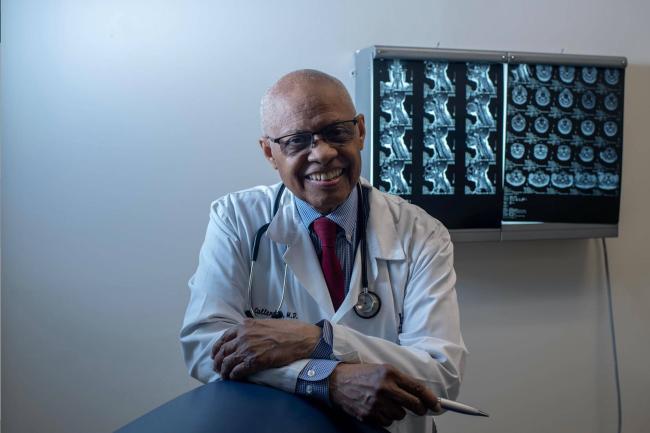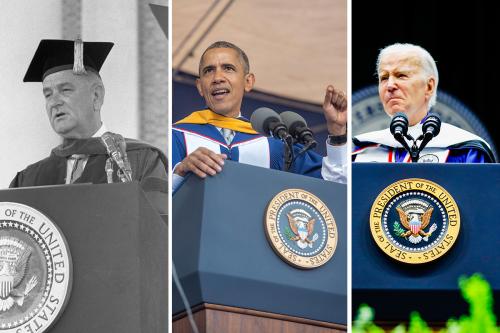WASHINGTON – Legendary Howard University transplant surgeon Dr. Clive O. Callender has been honored by the 2021 American Society of Transplant Surgeons (ASTS) with its Pioneer Award, the most distinguished award bestowed by the organization upon an individual. The award comes as National Minority Donor Awareness Month is observed in the month of August.
In a video message announcing the award, ASTS past president Dr. Marwan Abouljoud said that when he started his career 28 years ago in Detroit, all of his learnings and readings on transplant awareness and organ donation kept leading him back to the works of one individual.
Dr. Abouljoud said he quickly came to appreciate that the one individual – Dr. Callender – had pioneered the segment of minority transplantation in the field, “adding a transformative body of knowledge, three decades before it was fashionable to speak about organ donation or disparities in communities of color.” He added, “I can think of no one at this moment in our history who is more deserving of this recognition than Dr. Callender.”
In the early 1970s, Dr. Callender began developing the first minority-directed dialysis and transplant center in the country at Howard University Hospital. In 1991, Dr. Callender conceptualized and founded the National Minority Organ Tissue Transplant Education Program (MOTTEP) for the purpose of increasing minority donation rates nationally. The organization has been widely heralded for its public awareness campaigns directed at minority communities. Through the years, such efforts have proved to be extraordinarily effective.
Responding to the presentation of the Pioneer Award, the 84-year-old Dr. Callender remarked that he was grateful to the many who paved the way for this journey, including his mother, Ida Callender, who, after giving birth to Dr. Callender and his twin brother Carl, died some hours later. He also expressed gratitude to his wife, Fern, and his three children, Joseph, Ealena and Arianne.
“One of things I learned early on [in my career] was that there was a shortage of donors and a complexity in this shortage of donors, and that minorities and African-Americans were rarely donors,” Callender said. “This then became the quest for me because I had a rich experience as a church person, and I thought that this was something I should try to do. Yes, it was an impossible dream. But then, in my life, the impossible often became possible. So, this became the challenge that I took up.”
National MOTTEP was the first national organization to identify a two-fold solution to the donor shortage. The solution includes increasing the number of minority donors and decreasing the number of persons who need transplants through a health promotion campaign aimed to prevent the need for transplantation.
Along with MOTTEP and many organizations throughout the country, Howard University and Howard University Hospital are commemorating August as National Minority Donor Awareness Month. The awareness month is a collaborative effort by the National Organ, Eye and Tissue Donation Multicultural Action Group to save and improve the quality of life of diverse communities by creating a positive culture for organ, eye and tissue donation. National Minority Donor Awareness Month stems from National Minority Donor Awareness Week, founded in 1996 by MOTTEP.
The need for donation and transplant is more pronounced in minority communities where disproportionately higher rates of diabetes, high blood pressure and heart disease contribute to organ failure, especially kidney failure. African-Americans are three times more likely than white Americans to have kidney failure. Hispanics are 1.5 times more likely than non-Hispanics to have kidney failure.
On average, African-American/Black transplant candidates wait longer than non-Black transplant candidates for kidney, heart and lung transplants. These health care disparities are part of the reason for National Minority Donor Awareness Month education and mandates the need to reach out to help heal and save lives in our communities.
During National Minority Donor Awareness Month, national organ donation organizations elevate the need for more organ, eye and tissue donors within multicultural communities, provide donation education, encourage donor registration, and promote healthy living and disease prevention to decrease the need for transplantation. National Minority Donor Awareness Month is another important effort to promote the positive messages that are necessary for minority communities to make the decision for organ, eye and tissue donation.
About Howard University
Founded in 1867, Howard University is a private, research university that is comprised of 14 schools and colleges. Students pursue more than 140 programs of study leading to undergraduate, graduate and professional degrees. The University operates with a commitment to Excellence in Truth and Service and has produced one Schwarzman Scholar, three Marshall Scholars, four Rhodes Scholars, 12 Truman Scholars, 25 Pickering Fellows and more than 165 Fulbright recipients. Howard also produces more on-campus African-American Ph.D. recipients than any other university in the United States. For more information on Howard University, visit www.howard.edu.
###
Media Contact: Sholnn Freeman, sholnn.freeman@howard.edu





